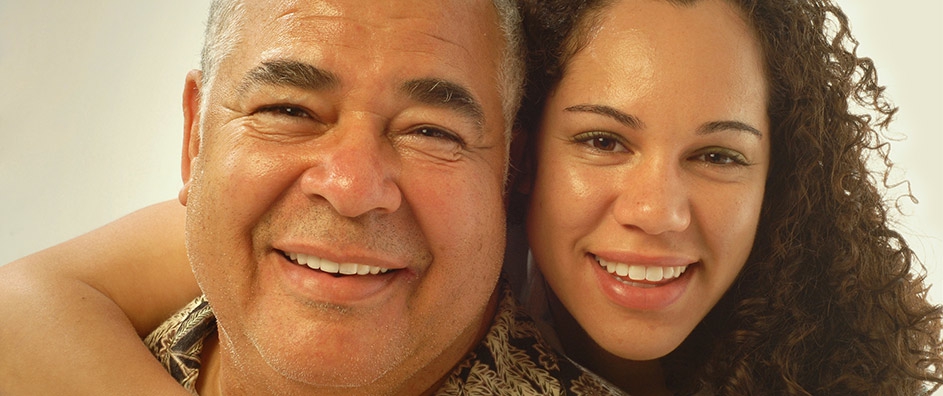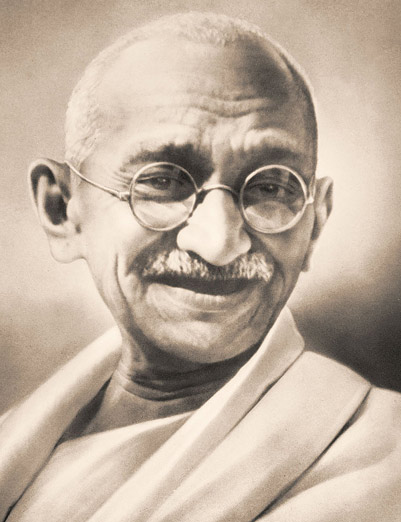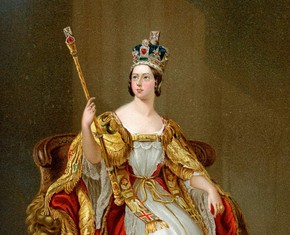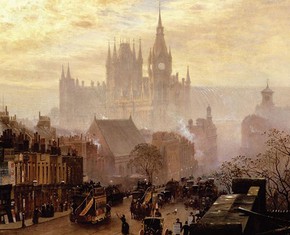The views expressed in our content reflect individual perspectives and do not represent the authoritative views of the Baha'i Faith.
Do you have a role model? Think about it for a minute while I tell you a tale.
For six years I worked in a large health care organization that specialized in the hospital-based treatment of alcoholism and drug addiction. We treated thousands of people, from every culture, racial group and walk of life, from the very poor to the very wealthy.
Before I met our patients, I used to think—like many people do–that addiction only occurred in those who had weak willpower or some serious moral or character deficiency. But I quickly realized that addiction happens to a wide spectrum of human beings, and that it has little to do with will or morality. Instead, science now has started to discover, certain genetic predispositions make alcohol and drug addiction much more likely for some people.
During that period I became good friends with several of the physicians I worked with—including one remarkable psychiatrist named Joseph Pursch, who had treated the First Lady of the United States and many more well-known public figures, celebrities and athletes—and they gave me a fascinating education on the disease-model approach to the treatment of chemical dependency.
Throughout those six years, I had many unusual and eye-opening experiences, which taught me a great deal about life and the human spirit.
One of the experiences I remember most started on a Sunday night. I got a call from Dr. Pursch, who informed me he had just admitted a celebrity athlete to one of our treatment centers. Without mentioning his identity or his sport, I’ll just say that you didn’t have to be a sports fan at the time to know his name. Famous throughout the world for his athletic prowess, he also had a “squeaky-clean” image. Never before associated with any scandals, run-ins with the authorities or personal problems, he had become a role model for millions—someone kids and adults everywhere looked up to and idolized.
After Dr. Pursch told me about the patient, he said “Oh, and it looks like someone leaked it to the media.” In the early days of drug and alcohol treatment, before rehab had become as common and accepted as it is today, I knew that news about someone like this would create a huge public furor.
My job, dealing with the media, had just gotten very complicated.
The next morning the hospital braced for the media onslaught. When I arrived before 7 a.m., television trucks already surrounded the entire building, their satellite antennas up and broadcasting to the local and national morning news shows. At least a dozen reporters took turns doing their stand-ups in front of the hospital’s sign. One of the TV reporters, a smart woman I had known and been friends with for some time, caught me in the parking lot, her cameraman already recording. She knew from several previous interviews that I couldn’t answer questions about a patient’s identity. So her question went in another direction—she said “What do we tell the world’s children about their role model?”
I tell you that true story to illustrate a larger point—the world today deeply yearns for good role models. Who is yours?
National Medal of Science winner, MacArthur “genius” grantee and Columbia University sociology professor Robert Merton coined the term “role model.” (A terrific inventor of terms and labels, he also coined “unintended consequences,” “self-fulfilling prophecy” and “focus group”—actually, he invented focus groups as a way to study people’s opinions and emotions.) Merton concluded, after researching the socialization of medical students at Columbia, that every person attempts to fit themselves and their life goals into what he called a “reference group.” That group, his research showed, is composed of the people who we admire and whose lives we want to use as examples for how to conduct our own life.
We all have role models.
For many of us, our parents serve as our first role models. Typically, teachers fulfill that function next, especially in the early elementary years, when children tend to most closely identify with their educators. When we reach adolescence, however, we often try to find other examples in the wider world, people whose lives we want to emulate because of their qualities, their success, their high achievements, their prominence and their impact on the world.
Before the advent of today’s saturation media coverage, many people saw political leaders as role models. Athletes and artists usually came next—that highly-talented small group of sports standouts, actors, musicians and celebrities who fueled our admiration. In 2008 Britain’s educational trade union, the Association of Teachers and Lecturers, conducted a survey of young people–and found that most of them named sports stars as their role models, followed by pop stars.
But today many of our role models have faded or disappeared. Now hardly anyone idolizes or tries to imitate political leaders, who we increasingly see as compromised or corrupt. Drug and doping scandals have made some athletes much less admirable. Entertainment industry stars no longer inspire us much, maybe because our celebrity-focused media tells us so many details about their frailties and failings.
More and more, thoughtful people find their role models in the world’s ethical and moral exemplars. Leaders of powerful popular movements like Mahatma Gandhi, Martin Luther King, Jr., Mother Teresa and Nelson Mandela now tend to serve as role models for both children and adults. They see and want to emulate the positive impact of the sacrificial lives of service these selfless people gave to humanity.
In that vein, I’d like to introduce you to Abdu’l-Baha, my own role model and the role model for millions of Baha’is–and others—in every part of the world. The son of Baha’u’llah, the prophet and founder of the Baha’i Faith, Abdu’l-Baha led the world’s Baha’is for 29 years, and in the process became internationally known for his spiritual teachings, his dedication to the poor and his passionate advocacy for the elimination of war, racism, oppression, prejudice against women and religious fundamentalism. He spent much of his life in prison and exile, and then slowly became one of the world’s most revered, admired role models. His reputation and renown spread around the globe because of his devoted work with the poor, the downtrodden and the disadvantaged:
My admonition and exhortation to you is this: Be kind to all people, love humanity, consider all mankind as your relations and servants of the most high God. Strive day and night that animosity and contention may pass away from the hearts of men, that all religions shall become reconciled and the nations love each other, so that no racial, religious or political prejudice may remain and the world of humanity behold God as the beginning and end of all existence. God has created all and all return to God. Therefore love humanity with all your heart and soul. If you meet a poor man, assist him; if you see the sick, heal him; reassure the affrighted one, render the cowardly noble and courageous, educate the ignorant, associate with the stranger. Emulate God. Consider how kindly, how lovingly He deals with all and follow His example. – Abdu’l-Baha, Foundations of World Unity, p. 73.
In this short series of essays, we’ll explore Abdu’l-Baha’s life, look at what motivated and moved him, and try to understand why so many millions of people from diverse cultures and civilizations have made him their role model.
You May Also Like
Comments


















Wonderful and enlightening. The simple message of "To Emulate GOD is to Love all and Peace to all" needs to be seeded in all the hearts of humanity, especially the kids.
Love,
Sridattadev.